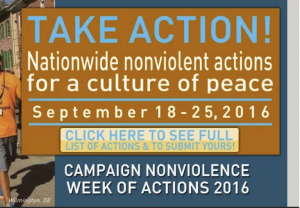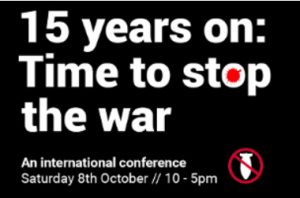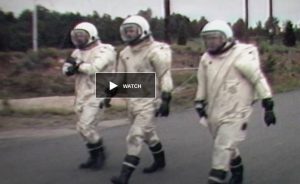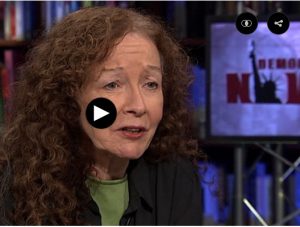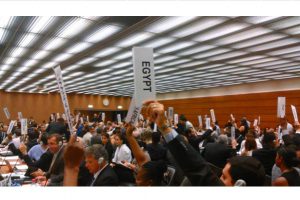DISARMAMENT & SECURITY .
Speech by Ingeborg Breines to International Peace Bureau
Excellencies, peace activists, honorable women and men, friends. Good evening and thank you for being here – and thank you to Arja Saijonmaa and the Berlin Metropol Orchestra for the wonderful music and song. We are lucky, and will hear more to them later.
More than thousand people have registered for this congress and we know that thousands more would have loved to come. We also know that several thousands are with us in the struggle for a world without war, the struggle to make WAR a thing of the past, something unheard of, something obsolete that humanity only in its infancy could think of.

So we are here to sharpen our non-violent tools, to deepen our understanding and strengthen our cooperation and friendship, so as to be that peace force for a transformative shift presenting alternatives to the insane, dangerous and naïve thinking that inequality, injustice, insecurity and marginalization can be solved by military means. We must develop together the strategies to stop this basically imperialistic thinking that if you want peace, you have to prepare for war. This old fashioned patriarchal way of insisting on the importance of having strong muscles and being militarily strong, is just a sign of moral and creative weakness. If we want peace, and most women and most men do, then we have to prepare for peace and use our financial and intellectual resources accordingly.
(Article continued in right column)
How can the peace movement become stronger and more effective?
(continued from left column)
Excessive military expenditures not only represent a theft from those who are hungry and suffer, but are also an ineffective means of obtaining human security and a culture of peace. Substantial reductions in military costs would eliminate the crushing poverty whereby nearly one third of humanity lives in insufferable conditions, a majority being women, children and young people. We need to move the money from the military sector and instead tackle the real security issues such as the threat to the very survival of the planet and humanity, be it by climate change, nuclear weapons or excessive inequality. We suggest that all countries reduce their military spending by 10% per year over the 15 years of the UN Sustainable Development Agenda. Although it will not change any power imbalance, it would go a very long way in meeting the needs and aspirations of people. Since one year military spending equals about 615 years of the UN annual budget, such a reduction in military costs would also strengthen the United Nations’ efforts and possibilities to “ save succeeding generations from the scourge of war”.
Rich and poor states alike seem to be pressured into arms races, spending more on armament than they need and can afford. To continue a process of militarization, often outside democratic control, that mainly serves the arms producers and dealers and even brings corruption is a dangerous path that will not bring hope to young people in desperation but may lead into extremism.
There is no way to justify war, killing and suffering. In IPB’s own words, we have to choose between warfare or welfare. We have only this one very unique and beautiful planet. The global climate change warrants urgent remedial actions and an holistic approach which again requires changing attitudes and rethinking of unsustainable and destructive production and consumption patterns.
The path of confrontational policies and accompanying militarization that we are on, is not leading us ahead. So let us create “an active disgust for war” to use Bertha von Suttner’s wording and create the world we want based on the vision and the principles of a culture of peace so well described by UNESCO.
Finally, allow me to share with you an encouragement that former president Gorbachev gave to the peace movement at one of the Nobel Summits in Rome. He said that he would never have dared take the steps he did to end the cold war if it had not been for the urging of the strong peace movement.
Friends, we have work to do.

